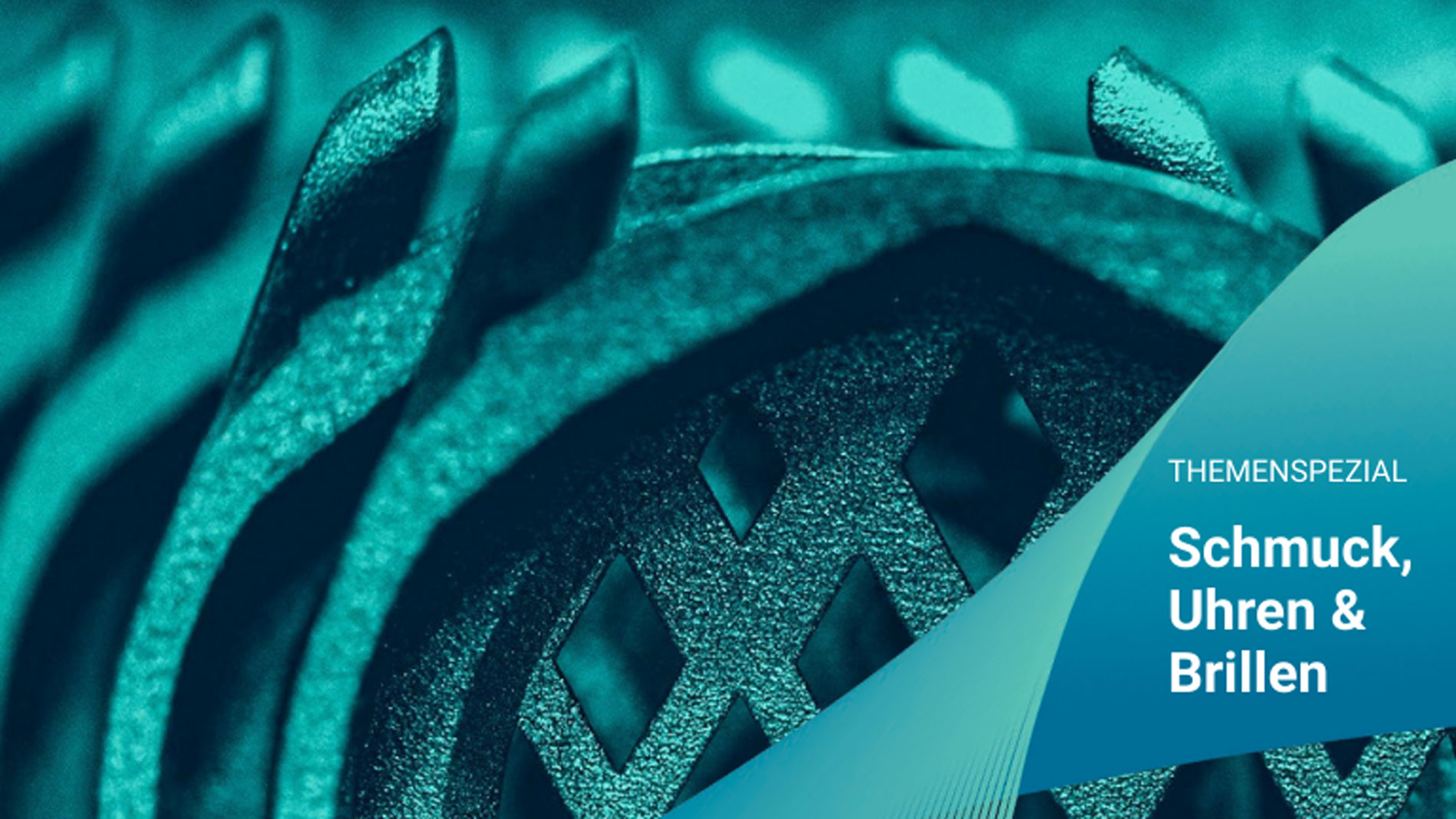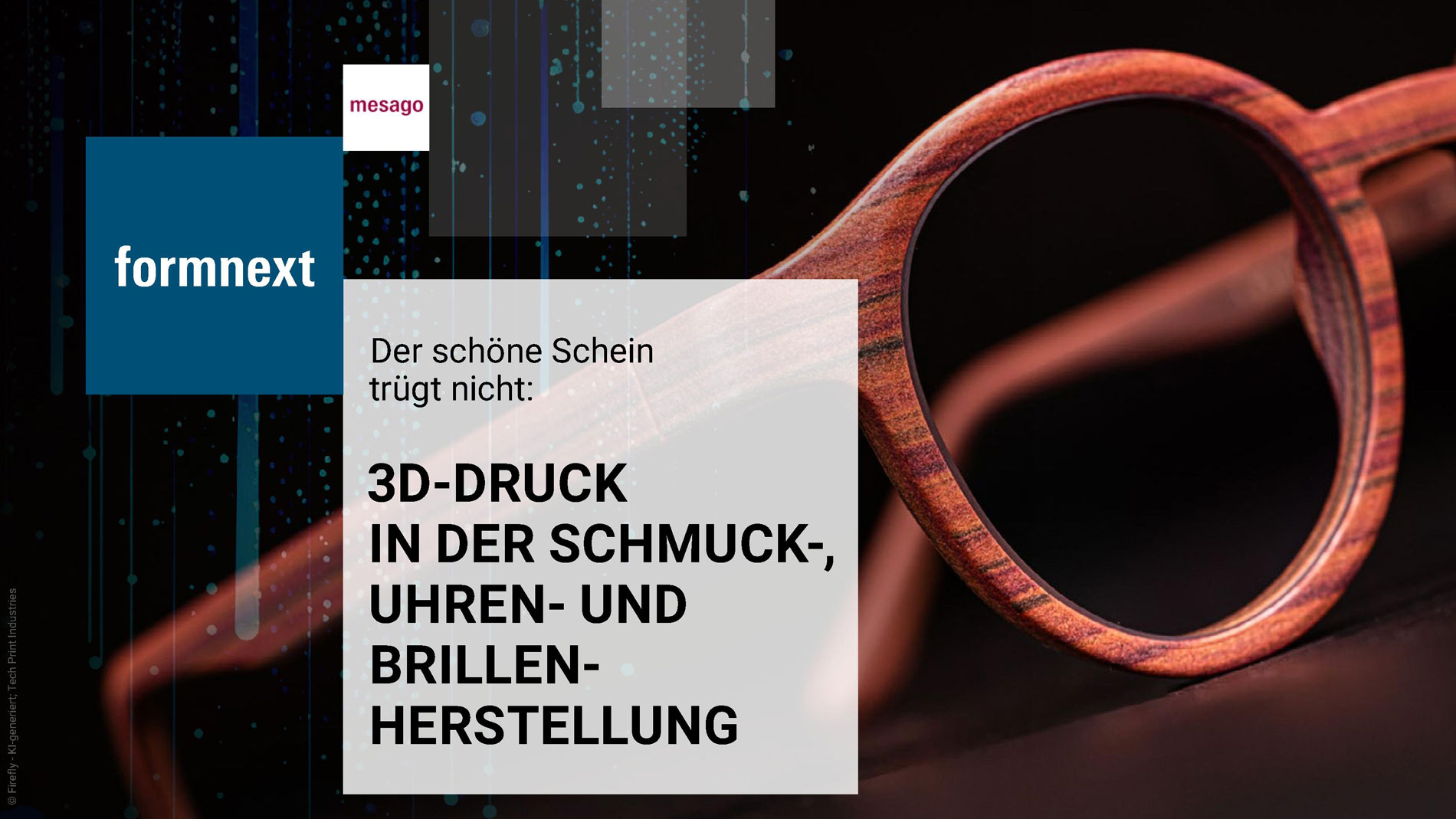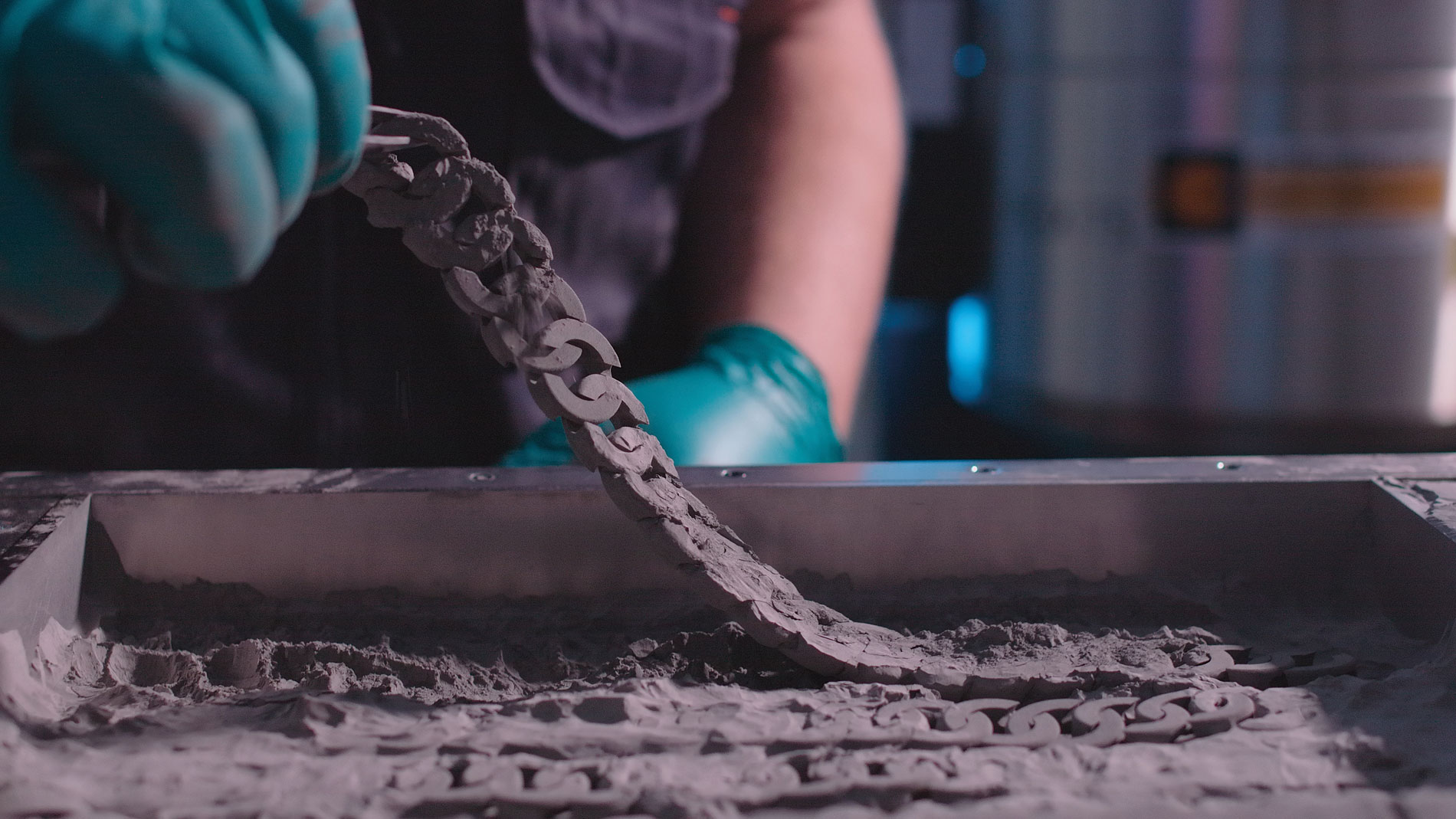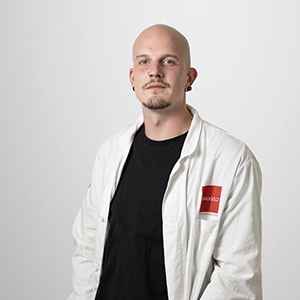Additive Fertigung (AM) eröffnet der Schmuck-, Uhren- und Brillenbranche neue kreative und technologische Möglichkeiten. Sie erlaubt die Umsetzung komplexer Designs, individueller Anpassungen und neuer Materialien – effizient und flexibel. AM ergänzt traditionelle Verfahren und treibt Innovationen in einer Branche voran, die sich zunehmend wandelt.
Neue Dimensionen für Design und Funktion

Die Branchen Schmuck, Uhren und Brillen stehen für höchste Ansprüche an Ästhetik, Präzision und Individualität – und genau hier setzt die Additive Fertigung (AM) neue Maßstäbe. Sie ermöglicht filigrane Strukturen, komplexe Geometrien und personalisierte Designs direkt aus digitalen Modellen – effizient, ressourcenschonend und wirtschaftlich auch bei kleinen Stückzahlen. Gleichzeitig eröffnet AM neue Freiheiten in der Gestaltung und Funktionalität, stellt aber auch hohe Anforderungen an Nachbearbeitung, Oberflächenqualität und Reproduzierbarkeit, um den Standards der Luxus- und Lifestylebranche gerecht zu werden.
In unserem Themenspezial beleuchten wir den gezielten Einsatz von AM in den Bereichen Schmuck, Uhren und Brillen. Auf dieser Themenseite erwarten Sie kompakte Einblicke, inspirierende Praxisbeispiele und aktuelle Entwicklungen – rund um eine Technologie, die Tradition, Innovation und Individualisierung in Einklang bringt.
Wir haben folgende Insights und Fakten für Sie zusammengestellt:
Whitepaper – 3D-Druck in der Schmuck-, Uhren- und Brillenherstellung

In unserem Whitepaper „Der schöne Schein trügt nicht: 3D-Druck in der Schmuck-, Uhren- und Brillenherstellung“ erfahren Sie, wie Additive Fertigung gezielt Mehrwert in diesen drei Branchen schafft. Wir beleuchten zentrale Vorteile der Technologie, zeigen praxisnahe Anwendungsbeispiele, geben Einblicke in relevante Materialien und werfen einen Blick auf zukünftige Entwicklungen, die Design, Funktion und Individualisierung vereinen.
Thematisiert werden in 7 Kapiteln u.a.:
- Vorteile der Additiven Fertigung für die Herstellung von Schmuck, Uhren und Brillen
- Materialien und Technologien im Überblick
- Drei Anwendungsfälle
- Zukunftsperspektiven und Herausforderungen
- Fünf Punkte, die beachtet werden müssen, wenn man den 3D-Druck in der Herstellung von Brillen, Uhren oder Schmuck anwenden will
Formnext Technology Talks – unsere digitale Webinarreihe
Losgelöst vom Messezeitraum bieten unsere Webinare zu den jeweiligen Fokusthemen in einer kurzweiligen Talkrunde einen aktuellen Marktüberblick, neueste Insights und Lösungen zu wichtigen Fragestellungen sowie den Austausch mit Branchenexperten.
Technology Talk Schmuck, Uhren & Brillen (in Englisch)
30. Oktober 2025 I 16:00 – 17:00 Uhr I Zoom-Meeting
Am 30. Oktober laden wir Sie herzlich zu unserem nächsten Technology Talk ein. Freuen Sie sich auf eine inspirierende Runde mit spannenden Vorträgen zu aktuellen Entwicklungen, innovativen Anwendungen und Herausforderungen rund um den Einsatz der Additiven Fertigung in der Schmuck-, Uhren- und Brillenherstellung:
- Davide Sher, CEO VoxelMatters
Talk: Market report & moderation
- Matteo Giantin, Head of Innovation Division for AM, Progold S.p.A.
Talk: Innovative printing strategy for high-resolution jewelry production by Selective Laser Melting
Abstract of the presentation
The company history on Selective Laser Melting (SLM) dates back to about a decade ago. Over the course of the years, the research has touched several topics to evaluate the general performance of this recent jewelry manufacturing process, starting from parameter selection to particle-size distribution and flowability to obtain denser items and uniform powder layers. This was followed by trace additions of semiconductor elements (Ge, Si) to increase the laser absorption as well as changing the structure of the support systems that led to a significant reduction in roughness and residual porosity. Other research has compared the traditional lost-wax investment process to selective laser melting in producing typical decorative details or platinum jewelry and demonstrated the opportunity of the printing process as a magic pot to produce outstanding hard, white-gold alloys with very unusual elements (Nb, Ti) and that have a milder environmental impact.
The aim of this research was studying how to increase printing resolution to allow the manufacture of jewelry items having very sharp and detailed decorative structures and elements. This advantage would make laser printing not only much more competitive with respect to direct investment casting, but would also allow for producing innovative and complex geometries with larger size, less weight and better mechanical strength. In addition, the greater stability derived from higher resolution could allow a better finish on the jewelry.
- Thomas Lehman, Designer
Talk: Creativity Unbound
Abstract of the presentation
Analog Lab
Analog Lab is a Milan- and Seattle-based design studio founded by American designer, inventor, and strategist Thomas Lehman. For over 20 years, Thomas and his team have created brands, design strategies, and products for leading companies such as Ferrari, Nike, and Prada.
Amano+
Our 3D-printed watch project, Amano+, grew from Thomas’s lifelong curiosity and passion for working at the edge of creative process. Trained as both a designer and jeweler—and an early adopter of 3D printing—Thomas first experimented with the technology using one of the original Makerbots in Brooklyn. Since then, our team has applied 3D printing across furniture, lighting, and accessories, culminating in this deeply personal exploration of modern horology.
What Amano+ Means
Amano means “by hand,” reflecting our belief that every project begins through craft and intuition. The “+” represents our forward-thinking use of 3D printing technology—merging handcraft and innovation into a single creative vision.
Our Journey
Over the past three years, we’ve collaborated closely with Legor and HP to develop one of the first fully 3D-printed stainless steel timepiece collections: the A+ Arc Collection. Designed and produced in Milan, it embodies a “Made in Italy” spirit—melding cutting-edge technology with timeless craftsmanship.
Why 3D Printing
We’re reimagining what’s possible in a traditional and often static category. By using HP’s binder jet process, each watch body gains a distinctive texture and form that makes every timepiece truly one of a kind. Post-processed by CNC, hand-finished, and assembled with meticulous care, each Amano+ piece reflects a balance of advanced engineering and artisanal precision.
Sustainability and Innovation
Our partnership with HP and Legor enables us to design with recyclable materials, minimize waste, and celebrate the natural beauty of the 3D stainless steel printing process itself—producing forms impossible through conventional methods.
Tailored Time
Every Amano+ timepiece is brought to life by our clients through our online configurator, allowing each customer to personalize their own “tailored time.” Each piece becomes a collaboration between maker and wearer—a truly bespoke expression of design and individuality.
What’s Next
Now in our pre-launch phase after years of development and testing, we’re excited to debut our first collection and explore even more ambitious designs. Amano+ represents design without limitations—a growing lifestyle brand that fuses evolving technology with the excellence of Italian craft.
- Lucas Friedfeld, Operations Specialist, Tech Print Industries (TPI)
Talk: The future of eyewear in Additive Manufacturing
Abstract of the presentation
The evolution of TPI and how democratization of design and a new type of factory model reshaped eyewear production
Three short stories highlighting different customer groups and applications:
- Minima – partnership story and resulting benefits
- Journey Frame – design evolution and production innovation
- Small boutique/designer & smart eyewear – the value of on-demand, scalable manufacturing
Conclusion: a look ahead at how TPI is building the next generation of eyewear through software integration
Fon Mag Special Schmuck & Uhren

Die Antwort auf Veränderungen in einer edlen Nische
Die Schmuckindustrie steht vor einem Wandel – hin zu mehr Flexibilität, Individualisierung und kleineren Stückzahlen. Das italienische Unternehmen Legor treibt die Additive Fertigung in der Schmuckherstellung mit Binder-Jet-Technologie und innovativen Materialien vor. In unserem Special der Ausgabe 2/2025 stellen wir Ihnen die neuesten Lösungen, Herausforderungen und Perspektiven vor.




